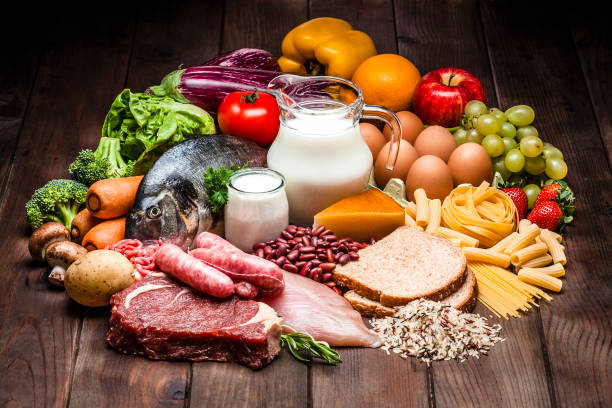about high protein foods. We'll explore what to eat and drink, what to avoid, and reveal the number one mistake people make when aiming for a high protein diet.

What to Eat and Drink
1. Protein-Rich Foods: The cornerstone of a high protein diet is choosing the right foods. Focus on protein-rich options that are low in carbohydrates:
- Meat and Poultry: Steak, lamb, chicken, and turkey are excellent choices.
- Seafood: Opt for salmon, tuna, shrimp, and other shellfish, ensuring they aren’t deep-fried or breaded.
- Eggs: A versatile and nutritious source of protein.
For vegetarians and vegans:
- Beans and Tofu: These are great plant-based protein sources.
- Above-Ground Vegetables: Broccoli, spinach, mushrooms, and cauliflower are high in protein per calorie.
- Greek Yogurt: A protein-packed snack option.
Beverages: Keep it simple with water, coffee, or tea. These drinks provide hydration without unnecessary calories or carbs.
Foods to Limit
2. Foods to Consume in Moderation: While nutritious, the following foods should be limited as they don't provide as much protein or other nutrients per calorie:
- Below-Ground and Starchy Vegetables: Potatoes and carrots.
- Whole Grains: Can be high in carbs.
- Cheese and Nuts: High in fat.
- Added Fats: Use sparingly.
Foods to Avoid
3. Foods to Steer Clear Of: To maintain a high protein diet, avoid foods high in empty calories and low in nutrition:
- Processed High Carb, High Fat Foods: Donuts, candy bars, ice cream, and chips. These are not only low in protein but also hard to stop eating once you start.
- Bread and Cereal: Low in protein, high in carbs.
- Sweetened Beverages and Fruit Juice: These drinks add unnecessary sugars and carbs.
- Beer and Sweet Alcoholic Drinks: These can derail your protein goals with their high carb content.
The Benefits of High Protein Foods
Eating high protein foods can lead to numerous health benefits:
- Weight Loss Without Hunger: Protein-rich foods help you feel full longer.
- Improved Body Composition: Gain lean muscle mass while losing fat.
- Enhanced Appearance and Well-Being: Feel better and look better.
- Overall Health Improvement: Low-carb, high-protein diets are linked to better health outcomes.
Common Mistake: Overeating Nuts
While nuts are often considered a good protein source, they also contain a lot of fat and are easy to overeat. The biggest mistake in a high protein diet is consuming too many nuts. So, remember, don’t go nuts on nuts.
Getting Started with High Protein
Adopting a high protein diet is easier than you think. At DietDoctor.com, we provide plenty of recipes and evidence-based health guides to help you succeed. If you're ready to explore more, click the link below for a visual guide about high protein foods. For faster results, sign up for a free trial membership to access personalized meal plans, shopping lists, video courses, and much more.
Good luck on your journey, and I look forward to seeing you achieve your goals with high protein foods.









